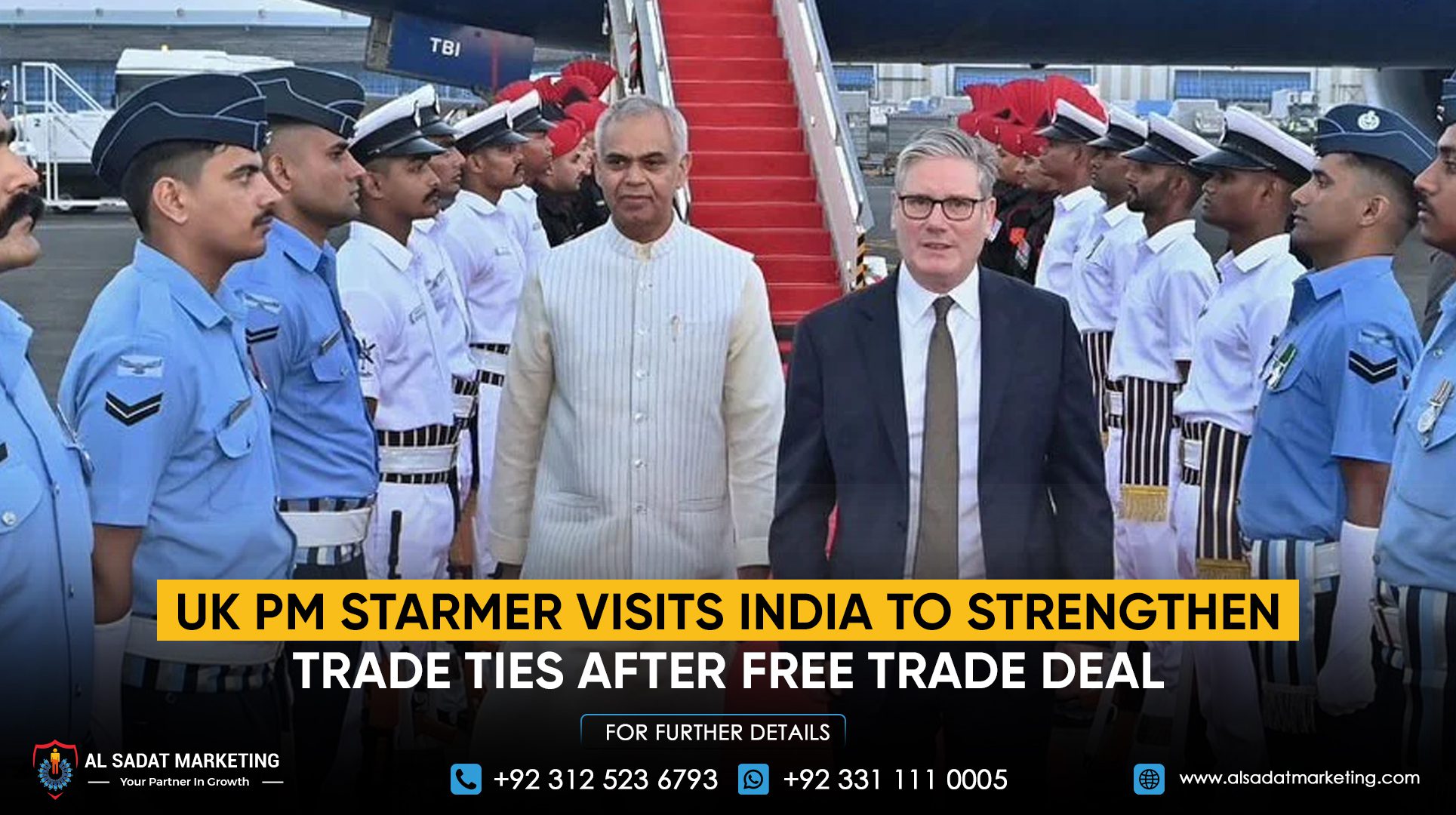British Prime Minister Keir Starmer arrived in India on Wednesday for a two-day official visit focused on strengthening economic and business relations after the signing of the UK-India free trade agreement (FTA) earlier this year. This marks Starmer’s first major overseas trade mission since taking office, highlighting the UK’s post-Brexit strategy to build stronger global partnerships.
The trade deal, finalized in July during Prime Minister Narendra Modi’s visit to London, is expected to add at least £25.5 billion ($34 billion) to bilateral trade by 2040. It cuts tariffs on goods such as textiles, cars, and whisky, while giving British companies greater access to India’s growing market. Officials have called this projection “a floor, not a ceiling,” pointing to even larger opportunities ahead.
Starmer, accompanied by more than 100 business, cultural, and academic leaders, described the agreement as “a launchpad for growth” and noted India’s rapid rise as a global economic power. He emphasized that India is on track to become the world’s third-largest economy by 2028, making it a crucial partner for the UK.
The British delegation includes executives from BP, Rolls-Royce, BT Group, Diageo, and the Scotch Whisky Association, sectors that stand to benefit from tariff cuts and smoother trade access. Under the deal, whisky tariffs will drop from 150% to 75% immediately and gradually to 40% over the next decade, a move expected to boost UK exports significantly.
During his visit, Starmer will meet with Modi for bilateral talks covering investment, energy transition, and education. Both governments have expressed intent to ratify and implement the FTA within a year.
Air travel between the two countries is also set to expand, with British Airways announcing a third daily flight between London and Delhi by 2026 and IndiGo planning a new Delhi-Manchester route.
The visit comes at a crucial time for Starmer, as his government faces economic challenges at home, including inflation pressures and slow productivity. Analysts see the India trip as a key test of both his economic and diplomatic strategy, showcasing Britain’s ability to secure meaningful trade partnerships outside of Europe.










